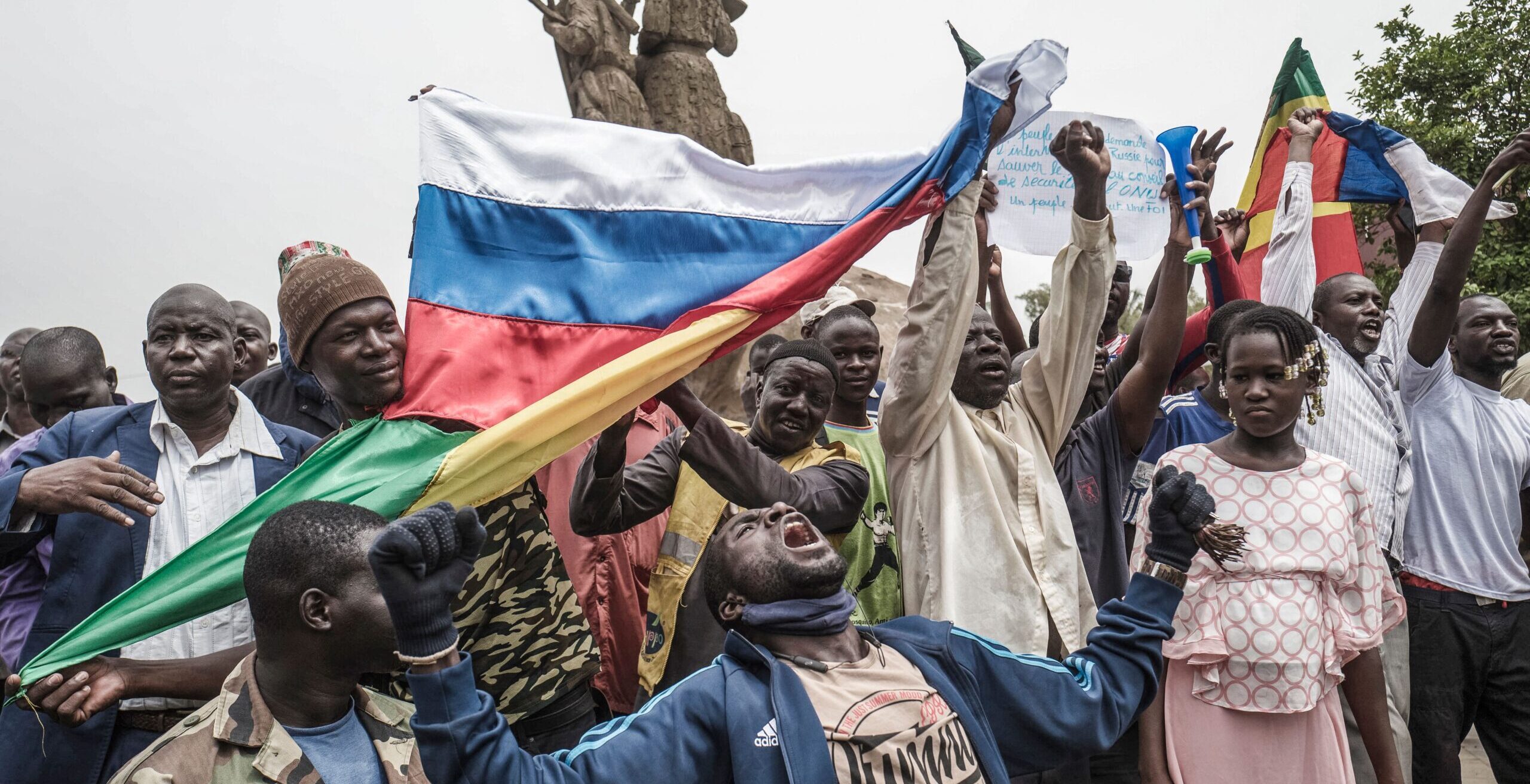Even as Russia’s controversial Wagner Group private military company pulls out, victorious, from the shattered ruins of Bakhmut, their easier and far more lucrative operations in Africa are attracting increased international scrutiny. Yesterday, the US State Department announced that it is sanctioning Wagner’s local commander alongside two Malian army officers for alleged command of a massacre of 500 Malian villagers in March last year.
According to a recently-released UN report, during a days-long operation in the village of Moura in Mali’s troubled central Mopti region — home to a jihadist insurgency dominated by the mostly ethnic Fulani pastoralist Katibat Macina group — villagers were rounded up and interrogated by both Malian and “white” forces. Women were raped and hundreds of men summarily executed.
Though the report does not explicitly mention either Wagner or Russia, Wagner is the only likely candidate. As the Guardian already established last year, Malian army documents revealed the presence of “Russian instructors” on “mixed missions” with the Malian army at the time of the massacre, and “Wagner were deployed near Moura at the time, and took part in other operations in which many civilians were killed.”
The tragedy in one remote Malian village is downstream of rifts at the highest levels of international diplomacy. Following years of deteriorating relations, France pulled its troops out of the country following 2021’s military coup. This left Russia to fill the gap, and Mali to jump headlong into Moscow’s orbit.
While outcompeting France in its own postcolonial backyard is a humiliation for Paris, it’s also a headache for Washington, keen to limit Russia’s growing influence in the developing world. America’s argument, as expressed by the State Department’s Victoria Nuland last year, is that, far from solving Mali’s security woes, “the Malian junta has invited in Wagner and terrorism has become significantly worse,” adding that “incidents of terror” had increased by 30% over the previous six months as civilians enraged by human rights abuses turn their support towards jihadist rebels.
This argument has impeccable logic according to Western counterinsurgency or COIN doctrine, in which the key to defeating insurgencies is to address civilian grievances, but evidently Mali’s government prefer Russia’s more aggressive approach. Western COIN failed in Afghanistan after all, whereas Russia’s Wagner-led counterinsurgency campaign in Syria, though brutal, has effectively crushed the Sunni rebellion.
Western leaders chiding Mali’s military junta over Wagner’s human rights abuses ignore the fact this may be precisely the group’s attraction. While the State Department announced that America “is appalled by the disregard for human life exhibited by elements of the Malian Armed Forces in cooperation with the Kremlin-backed Wagner Group — a transnational criminal organisation,” the Malian junta simply brushed off the UN report as “fictitious” and “biased”.
Malian troops were active participants in the massacre, and it may be over-optimistic to expect the leaders of a military coup in a war-torn country to place great emphasis on the human rights of the ethnic minority they blame for insecurity. According to Mali’s junta leaders, justifying their turn to Moscow, “the military success we achieved in the past two years outweighs anything that was done in past decades.” Far from alienating countries in the developing world, as the West hopes, Wagner’s bloody, gruelling but so far successful campaign in Ukraine may actually be Moscow’s most effective calling card.











Join the discussion
Join like minded readers that support our journalism by becoming a paid subscriber
To join the discussion in the comments, become a paid subscriber.
Join like minded readers that support our journalism, read unlimited articles and enjoy other subscriber-only benefits.
Subscribe